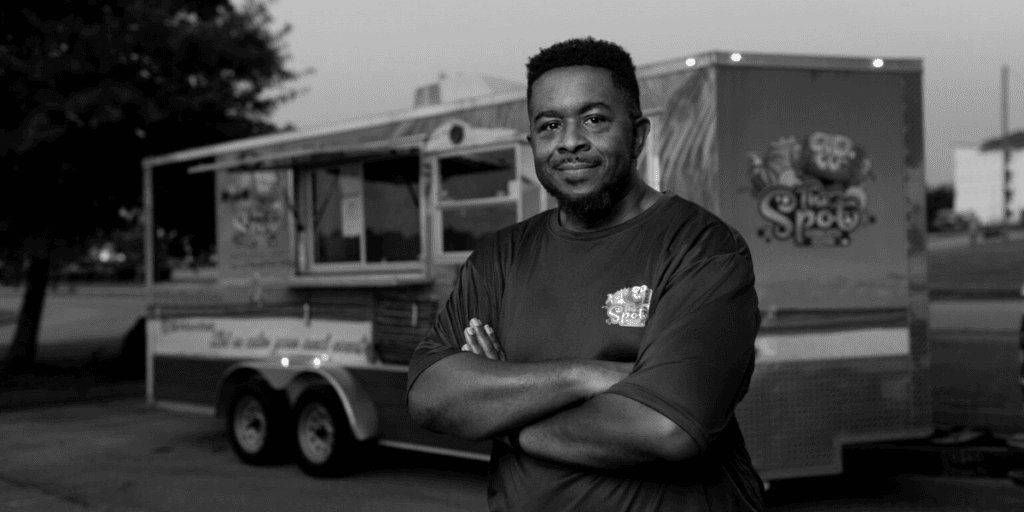Press release from Institute for Justice
On December 7, a group of small business owners teamed up with the Institute for Justice (IJ) to file a lawsuit challenging the city of Jacksonville’s anti-competitive regulations of food trucks on private property. The city’s restrictions effectively ban food trucks from operating in over 96 percent of the city.
“Jacksonville’s restrictions on food trucks serve no legitimate purpose,” said IJ Attorney Bob Belden. “The city is simply seeking to protect established brick-and-mortar restaurants from competition, and that’s no role for the government.”
The lawsuit is brought by Nicole Gonzalez, the owner of Northwoods Urban Farm, who seeks to host food trucks on her property; Anthony “Tony” Proctor, owner of The Spot food truck; and Octavius “Ray” Raymond, the owner of The Cheesesteak Hustle food truck and its commissary.
The goal of the lawsuit is to strike down three different regulations imposed by Jacksonville on food trucks and/or property owners who wish to welcome food trucks onto their land.
- First, property owners cannot host a food truck if the property falls within 250 feet of property containing another food truck, a restaurant or residential housing.
- Second, the city restricts a food truck’s ability to advertise by limiting operators to one 5×5 sign with no external lighting, which cannot be above the truck and must be within 20 feet of the truck.
- Third, the city requires all food trucks to pay an arbitrary annual permit fee of $300 (for residents) or $500 (for non-residents), even though almost all food truck oversight comes from the county and state, not the city. This is much higher than neighboring towns, some of which do not charge any fee at all.
Tony mostly operates The Spot food truck in other cities, but he does sell food sometimes in the parking lot of New Beginnings Christian Center, where he is a pastor, with permission of the church. However, the city’s rules largely prevent him from operating anywhere else, and if a restaurant were to open within 250 feet of New Beginnings, he’d be kicked out of there as well.
“Growing up my grandmother instilled in me that ‘Good food can change a person’s mood,’ and it is with this mantra and focal point that we serve our customers,” said Tony. “People have come to love the Florida-style seafood that I serve at New Beginnings Christian Center, and I truly wish I could change more people’s mood with our food throughout Jacksonville, but the city’s rules prevent me from doing so.”
Ray has a commissary in a leased location among a strip of other businesses, and has the permission of the owner to set up his food truck out front. However, because the strip is near property that is zoned residential and near restaurants, Ray can’t set up in front of his own commissary.
“Jacksonville’s rules have made it impossible for me to operate in the city,” Ray said. “I’ve had to take our business on the road to other areas that are more open to food trucks, like Wilmington and Charlotte.”
While Nicole doesn’t have a food truck of her own, she’d like to welcome more than just one to her general store’s parking lot. The city’s restrictions on where food trucks can operate prevent her from doing so.
“I would love to allow fellow entrepreneurs with food trucks to come to my business, serve their food and create a sense of community,” Nicole said. “But the city won’t allow me to support these local small business owners on my own private property.”
“These ridiculous restrictions violate the rights of property owners and food truck operators, and deprive Jacksonville residents of tasty food,” said IJ Senior Attorney Justin Pearson.
